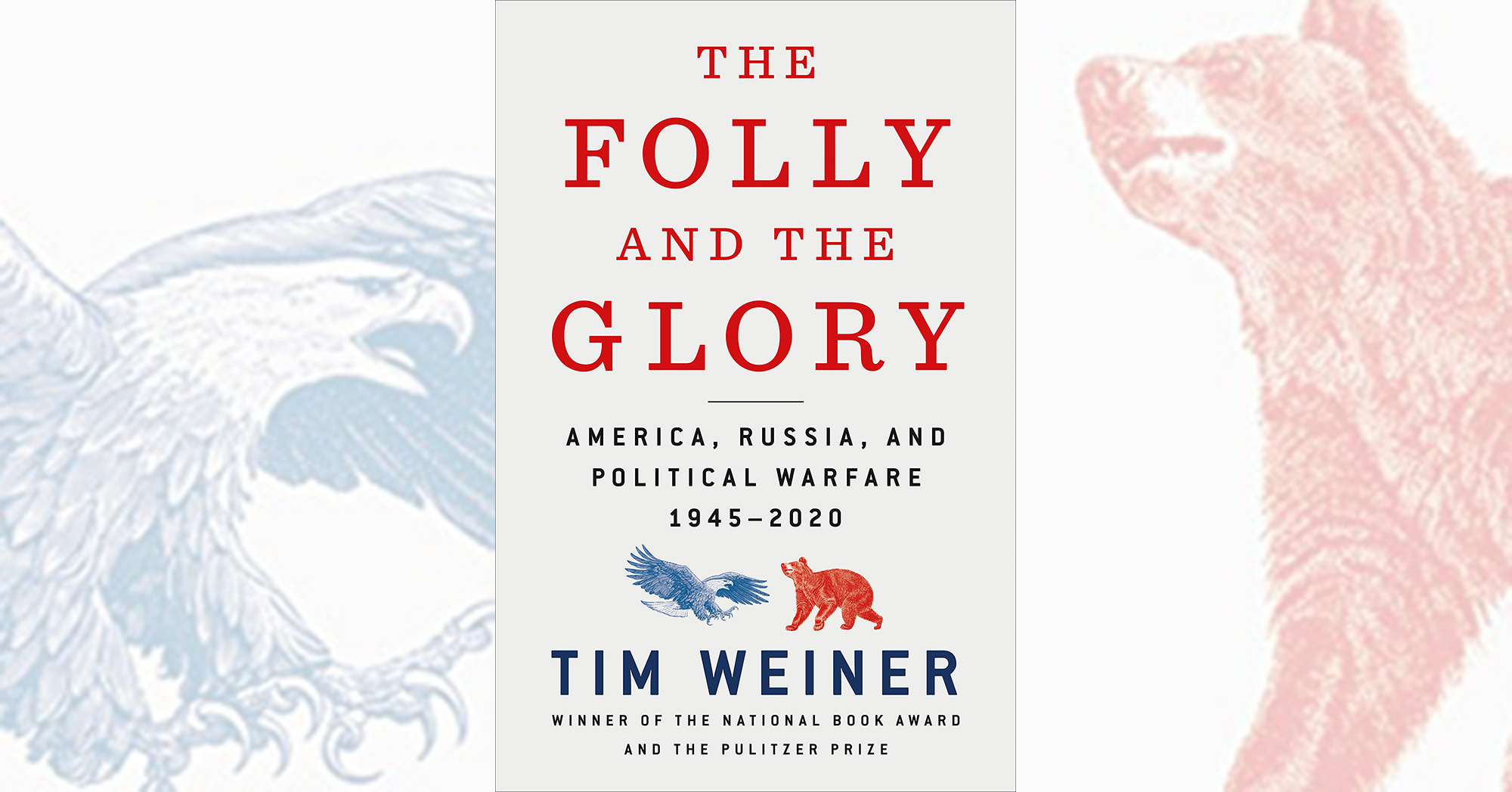The Folly and the Glory: America, Russia and Political Warfare—1945–2020, by Tim Weiner, Henry Holt & Co., New York, 2020, $29.99
Didn’t we beat the Russians in 1989? Apparently not, argues Pulitzer Prize–winning historian Tim Weiner, who seeks to make the case that we scored a knockdown but became so preoccupied celebrating our victory that they pulled themselves together and resumed their position as a dangerous rival.
Despite its rhetoric, the author notes, it appears the Soviet Union did not aim to conquer the world, while the Cold War will go down in history as a military standoff that avoided nuclear Armageddon largely by luck. Except for an occasional war, the United States followed a policy of pressure, maneuver and diplomacy known as containment—the “political warfare” of the book’s title. It worked. Weiner concedes that the Soviet Union’s efforts to match U.S. military spending did contribute to its collapse, but he gives equal weight to its failed command economy, widespread corruption and the morass in Afghanistan. With its collapse, exhilarated American pundits proclaimed freedom was on the march, and experts descended on Russia to advise on their transition to a free market, free elections and democracy.
Politically, matters did not go well. The rising Russian oligarchy, humiliated at the loss of their Eastern European satellites and much of their empire, looked with horror on Germany’s unification and made it clear that expanding NATO farther east, including to former Soviet satellites, would enrage them. We did it anyway. The transfer to a free market also went poorly. For many Russians, “democracy” equates to the terrible 1990s, when they endured a depression far worse than that of the 1930s. Most want no part of such an economy.
In 2000 Vladimir Putin succeeded the ineffectual Boris Yeltsin as president with the aim of making Russia respected again, and Weiner argues he has succeeded. His annexation of Crimea and attack on Ukraine were almost universally lauded at home. With an economy the size of Italy’s, Putin cannot match the United States’ military reach, but he has become a player in the Middle East and meddles in American politics with a seemingly unstoppable cyberwarfare offensive.
Elected on a platform similar to that of Putin, Donald J. Trump’s efforts remain a work in progress. However, Weiner bluntly contends that the president’s seeming admiration of Putin and North Korea’s Kim Jong-un augurs a steady retreat of democracy in favor of authoritarian governments around the world.
Putinism, the author says, is Stalinism lite, China has prospered spectacularly, and jingoistic parties flourish in most Western democracies. Weiner makes a riveting if bleak argument that the United States mishandled the collapse of Soviet-style communism, and now we’re reaping the consequences.
—Mike Oppenheim
This post contains affiliate links. If you buy something through our site, we might earn a commission.





